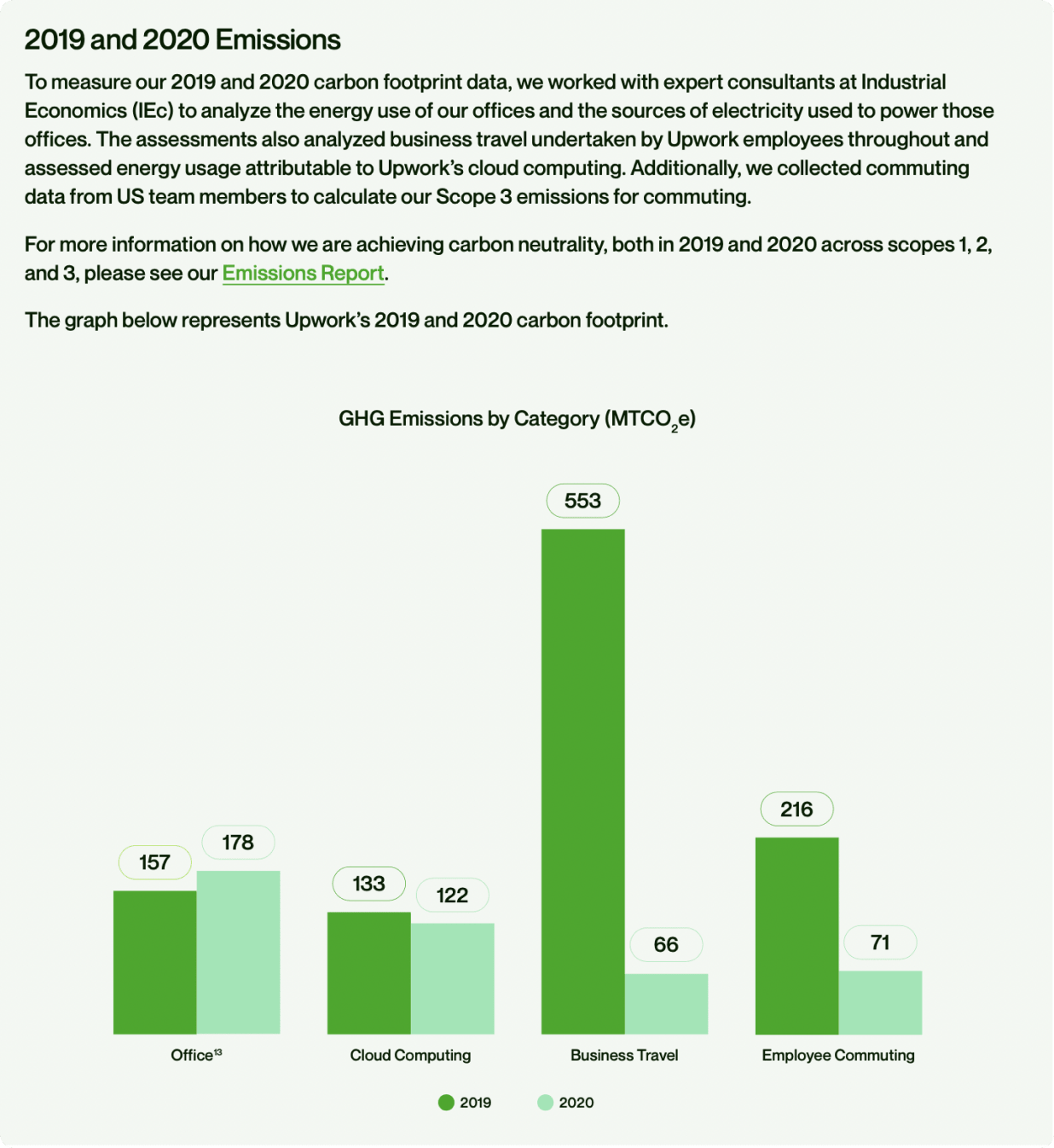In 2020, Upwork, the freelancer jobs platform, conducted a survey of 760 team members to gather data on their commuting patterns to evaluate the extent to which Upwork’s remote working policy helped avoid commuting-related emissions. The results — were powerful.
In total, Upwork enabled team members to reduce miles travelled in a personal vehicle by over one million miles in 2019. Now, imagine if all large employers initiated similar long-term policies, such as encouraging hybrid and remote working to cut down on commute-related pollution and office energy use.
Those companies could not only benefit from lower emissions but also a more inclusive worker model, which would embrace remote working for those that find it difficult to commute for a host of physical or personal reasons.
A remote or hybrid model also helps the freelancer economy. For example, outsourcing certain functions can create independent thinking, curb conflicts of interest and expedite projects forward. All of these factors could give a company’s environmental, social and governance (ESG) policies a positive boost.
Here are some of the findings from Upwork’s survey and 2020 Annual Impact Report.
.svg)
Energy and Emission Trends

Factors that impacted Upwork’s emissions
- Upwork expanded its Chicago office to include an additional floor in the middle of 2020, resulting in higher emissions for that office in 2020 than in 2019.
- Upwork closed its Mountain View office and opened our Santa Clara office in the middle of 2019.
- In 2020, Upwork reported its 2019 Scope 3 carbon footprint (including emissions from employee business travel, commuting, and cloud computing) as 860 MTCO2e.
In calculating the 2020 carbon footprint, Upwork obtained more precise data on its cloud computing usage than was used to calculate the 2019 figures. In addition, they also discovered a calculation error that resulted in incorrect emissions factors being applied to a portion of our cloud computing electricity use.
They have therefore recalculated their 2019 carbon footprint using this more precise data and corrected the emissions factors. This revision results in a slightly higher estimate of its 2019 Scope 3 emissions (and total emissions).
Last year, Upwork purchased Scope 1 & 3 offsets in excess of their originally calculated 2019 footprint of 860 MTCO2e, and as a result, they remain carbon neutral even with these higher emissions.
More details on the remote working survey can be found in Upwork’s Emissions Report.


